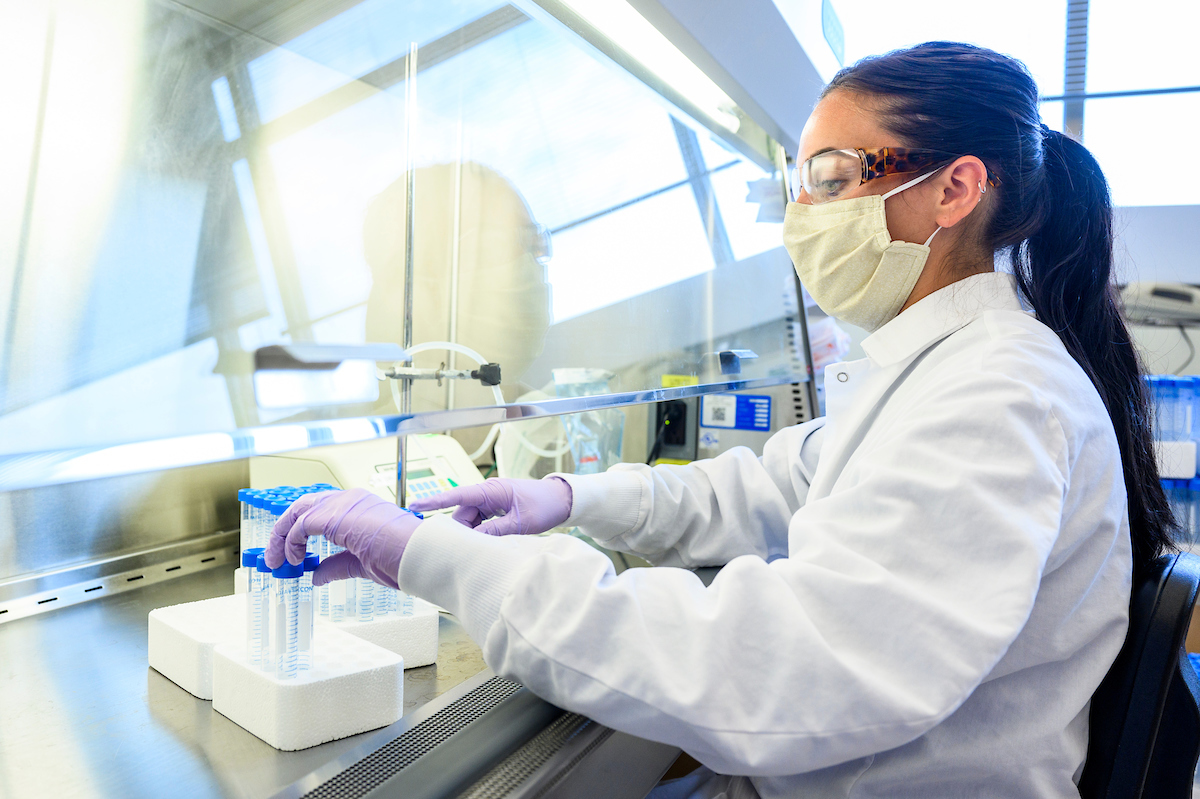
With information about COVID-19 rapidly circulating online, it can be difficult to determine what’s true and what’s not. Social media has made it even easier for misinformation and disinformation to spread unchecked. Knowing whether a claim or a source is reputable can be daunting, even for the savviest media consumers.
As the UW-Madison community of students, faculty and staff begin to plan their return to campus, having a verified and reliable source for information will be crucial to maintaining everyone’s health and safety. One such source is the COVID-19 Wisconsin Connect app.
Developed by a collaboration of campus groups, COVID-19 Wisconsin Connect is a free desktop and mobile app that provides accurate information, social support and helpful resources to Wisconsinites. One key feature of the app is the COVID-19 Fact Checker, a digest of information that separates COVID facts from fiction.
The information in the COVID-19 Fact Checker is provided by the Center for Communication and Civic Renewal (CCCR) within the UW-Madison School of Journalism and Mass Communication. Communication experts from CCCR find questions and misinformation related to COVID-19 on social media in Wisconsin, and conduct fact-checks using vetted content from experts at leading health and government sources to correct the misinformation.
“We see it as an essential part of the Wisconsin Idea for students and faculty to work together to bring the best information about the pandemic to the people of our state,” said Michael Wagner, SJMC Professor and Director of the Center for Communication and Civic Renewal.
Fact-checks can be an effective way to both identify and correct misinformation about COVID-19. One group dedicated to this work, the International Fact-Checking Network’s (IFCN) CoronaVirusFacts Alliance, has been working diligently to catalog over 7,600 fact-checks about COVID-19 into the CoronaVirusFacts Database.
Recently, IFCN chose six new researchers to join the CoronaVirusFacts Alliance and receive access to the CoronaVirusFacts Database for their research projects. Two of the researchers selected are from UW SJMC: Assistant Professor Sijia Yang and graduate student Yiping Xia.
Yang’s project, “Identifying and Implementing Effective Visual Enhancements to Correct High-Priority COVID-19 Misinformation”, also received funding from IFCN. His project will examine how visual fact-checks, such as infographics or illustrations, can influence public understanding of COVID-19. Using the fact-checks from the database, the team will design a series of surveys and experiments to find which visual fact-checks are most effective at fighting COVID-19 misinformation. Additionally, he plans to use the findings from his research to add information to the Fact Checker within the COVID-19 Wisconsin Connect app.
SJMC graduate students Janice Li, Ran Tao and Communication Arts graduate student Liwei Shen are collaborating with Yang as student project leaders, with the input from SJMC professor Dhavan Shah and alum Porismita Borah, now an Associate Professor at the Edward R. Murrow College of Communication at Washington State University.
“Many researchers around the world have already made impressive progress in tracking the rise and diffusion of various types of COVID-19 misinformation,” Yang said. “But not all misinformation is relevant for behaviors such as wearing masks and practicing physical distancing. Given limited resources and the severity of the pandemic, we need to focus on correcting misinformation that is most consequential for public health; we need to identify effective correction strategies to achieve that goal. Our project focuses on visual enhancements to corrections because visuals are often necessary to attract scant audience attention in today’s media environment and are potentially appealing to vulnerable populations with education deprivation or cognitive impairment. I hope the results from our project can inform our fact-checking efforts in CWC and provide evidence-based recommendations to the broader fact-checker community through our funder Poynter/IFCN.”
Xia’s project will look at how fact-checkers from around the world present fact-checks about the same information. By doing so, he hopes to understand diverse audience responses to similar misinformation in order to improve how fact-checkers communicate.
“I will work with SJMC Professor Lucas Graves to compare COVID-19 fact checks by organizations of different national backgrounds. We hope to understand how fact-checkers from different countries use different sources, or frame these sources differently, when writing about common themes of COVID-19 misinformation,” Xia said. “This research sheds light on the roles that cultural, political and institutional contexts may play in shaping effective responses to COVID-19 misinformation.”